Dog poo, quad bikes and a North-South divide: The start of the real football season
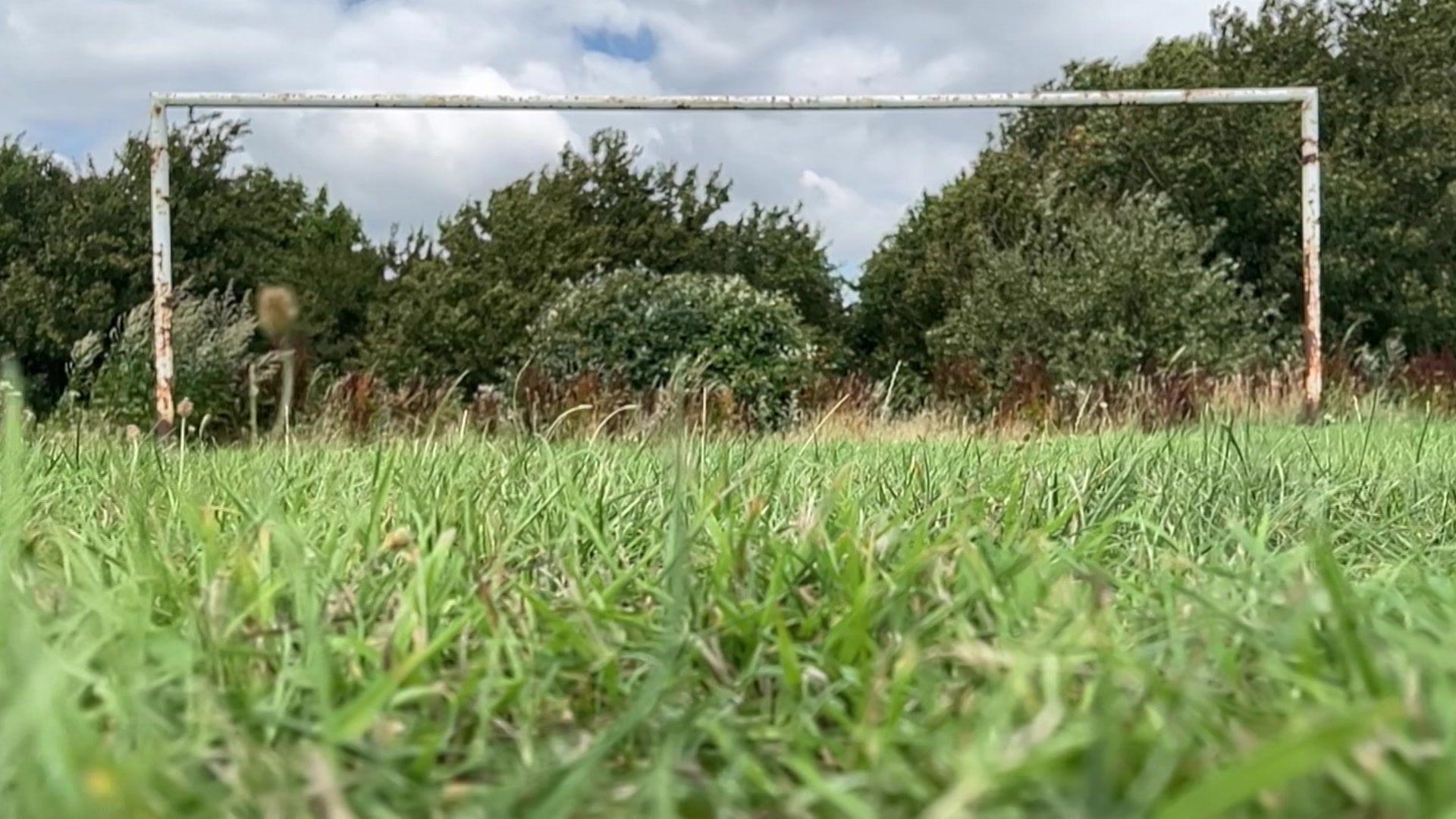
Smaller sports clubs are calling on the government to step in to help ensure they have a future in their communities
- Published
"We thought the record was 12 poo bags, but two weeks later we had 16," says Ecclesall Rangers football coach Martin Windle, who has trained thousands of footballers at the club for nearly 40 years and who does not want to think too hard about how many hours during that time he has spent picking up poo from the pitches here to get them ready for use.
But, as the football season kicks off across Yorkshire, Martin says he knows that not every team even gets access to such pitches - and he is just one of a number of people from grassroots clubs I have spoken to who say many of them cannot find space for youth teams to play on and they want more to be done to provide them for young players.
Martin clearly loves being on the pitches at Ecclesall Rangers while the various teams train, and when I speak to him he has been chatting with coaches and parents who all know him well.
He is a real fixture here, so much so that he has trained people who now bring their kids and grandkids down to Limb Lane to start their footballing lives.
He has even coached England Euros winner Esme Morgan here before her rise to the top of the game.
But with funding for sport falling over the last decade, and a North-South divide in access to green spaces, Martin is calling on the government to step in to help smaller clubs.
Looking around him, he says: "It's costing these parents a lot. We have to ask them: increase, increase, increase. It's very expensive.
"We're being told the money is filtering down to grassroots. After 36 years, I can honestly say I have not seen any of that.
"That's apart from last year when we had a grant from the Football Foundation to improve the grass pitches on this site. What happens? Quad bikes."
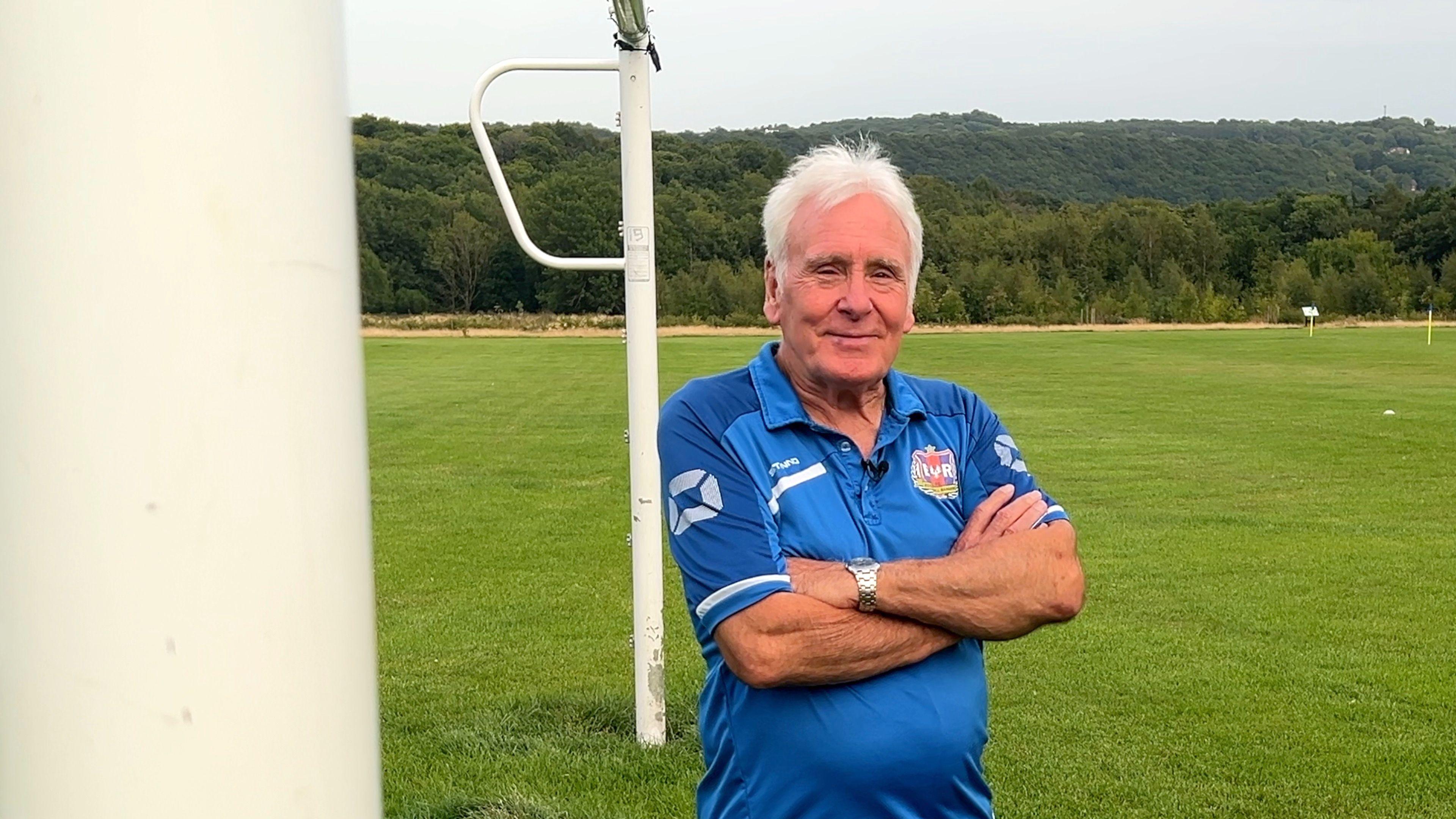
Martin Windle at Ecclesall Rangers trained Euros winner Esme Morgan until she was 15
As councils have faced increasing financial pressure over the last 15 years, funding for sport has fallen in many areas and sport and leisure is not a statutory service so councils do not have to provide facilities.
This has seen leisure centres closing and money for pitches being squeezed.
A recent analysis of figures from the Office for National Statistics by the IPPR North think-tank suggests the Yorkshire and the Humber region has the smallest parks and playing fields in the country.
The report says the amount of open space people in Yorkshire and Humber can access is two-and-a-half times smaller than in London and that parks are, on average, further away for people to reach.
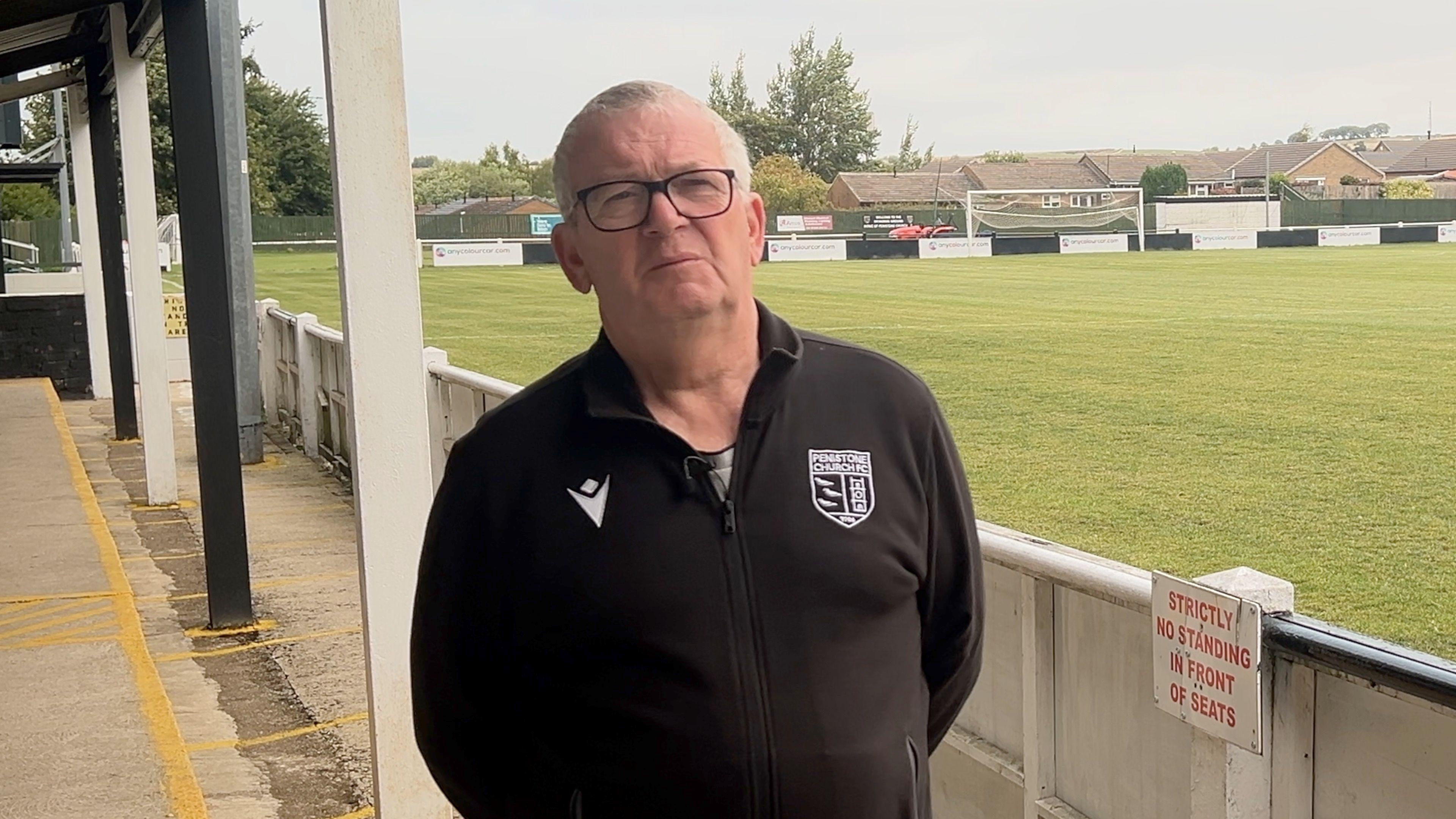
Dave Hampshire says more money needs to be "fed down" from the bigger clubs to smaller ones
Dave Hampshire, from Penistone Church FC, is another football volunteer in South Yorkshire who is doing every job going ahead of the start of the season.
Known locally as "Mr Penistone", he is further up the football ladder - literally, on this occasion. In fact, when I speak to him, he's standing on it to help paint the clubhouse.
Dave says without people like him giving up their time, the first football club Barnsley-born Manchester City and England star John Stones ever played for would not exist.
"We wouldn't be here, simple as that," he says.
"I'm a volunteer. Most of the people here are volunteers - from the junior managers to the people on the committee, the people you see here on a Saturday - we're all volunteers.
"And without volunteers, for any level of football at grassroots, they won't be there because you can't afford to pay everybody even a tenner."
'Clubs will disappear'
Dave explains that Penistone Church FC has had positive talks with the footballing authorities about money for a new all-weather pitch, but some cash will still need to be fundraised.
The growing interest in football means not all of their teams are guaranteed a pitch, at least here in Penistone, he says.
"We're probably the biggest group in Penistone for taking kids off the street and adults into football. We run from under-sevens right up to under-45s," he explains.
"Pitches is the hardest bit for us. We've been up at Crow Edge, we've been up at Thurgoland, and now we're at St John's School."
Dave says his answer is more money from authorities and maybe even from bigger clubs.
"More money's got to be fed down, otherwise clubs are going to disappear," he says.
As I leave, Dave is trying to work out where the water has come from which has been flooding part of the changing rooms.
He and his team of volunteers do this sort of thing twice a week, every week.
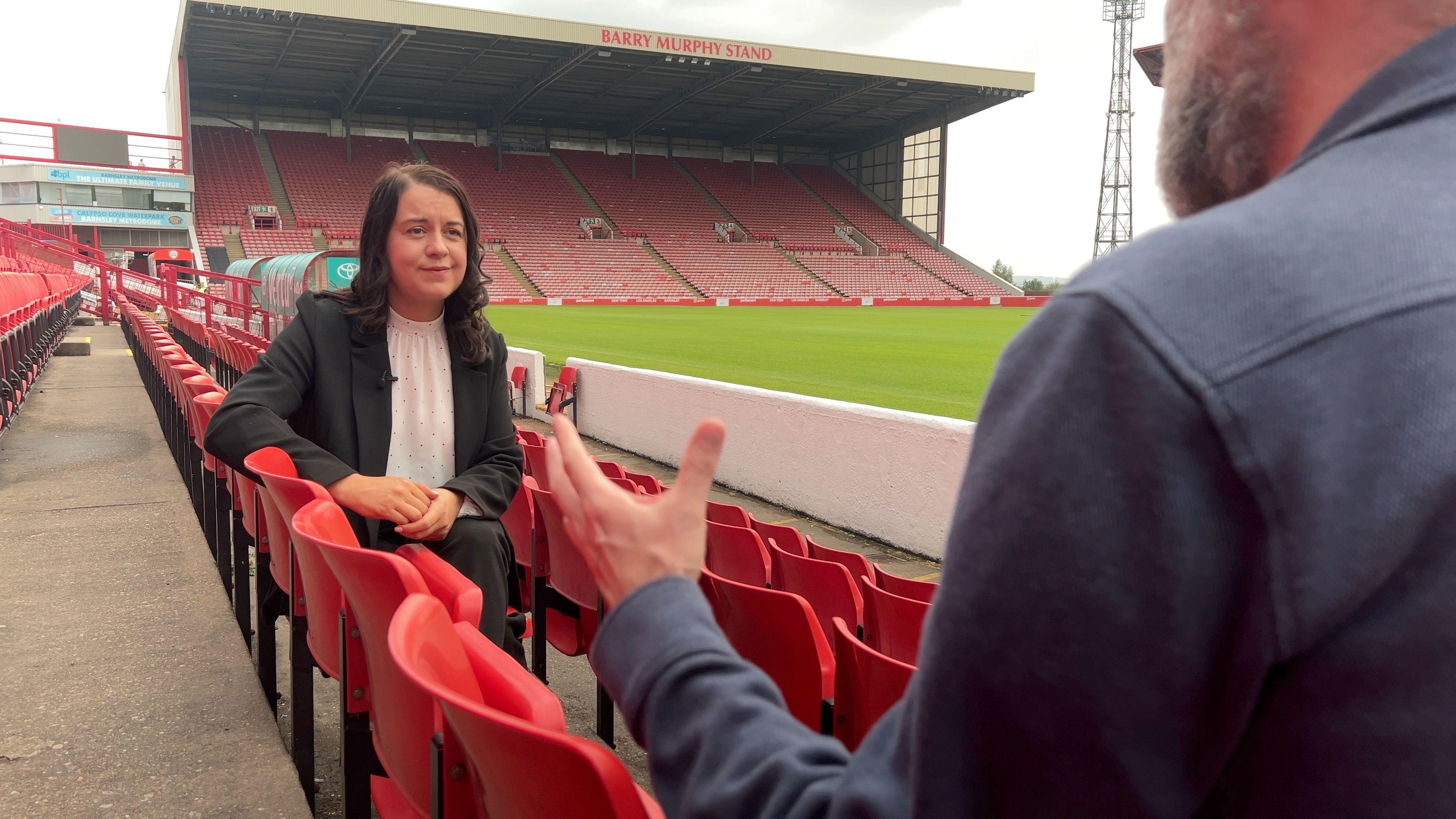
Sports Minister Steph Peacock says money has been invested in grassroots sports and more is on its way
I've sat in a lot of football grounds over the last few weeks and one of them was Barnsley FC's Oakwell ground.
It was there that I managed to put some of these concerns to Barnsley MP and Sports Minister Steph Peacock.
She told me money is on its way.
"As a government, we've announced £400m into grassroots sport and indeed £500m into elite sport - and elite sport is really important, inspiring the next generation," she says.
"One of the things we're doing is where we put money into grassroots sport and through the Football Foundation, we're changing the rules to make sure women and girls have access to priority slots when clubs apply for that funding.
"We've got a great record here in Barnsley of producing fantastic stars and, having been the MP for Barnsley for the last few years, it's not a surprise to me to hear about the North-South divide and it's something that as Sports Minister I want to tackle."
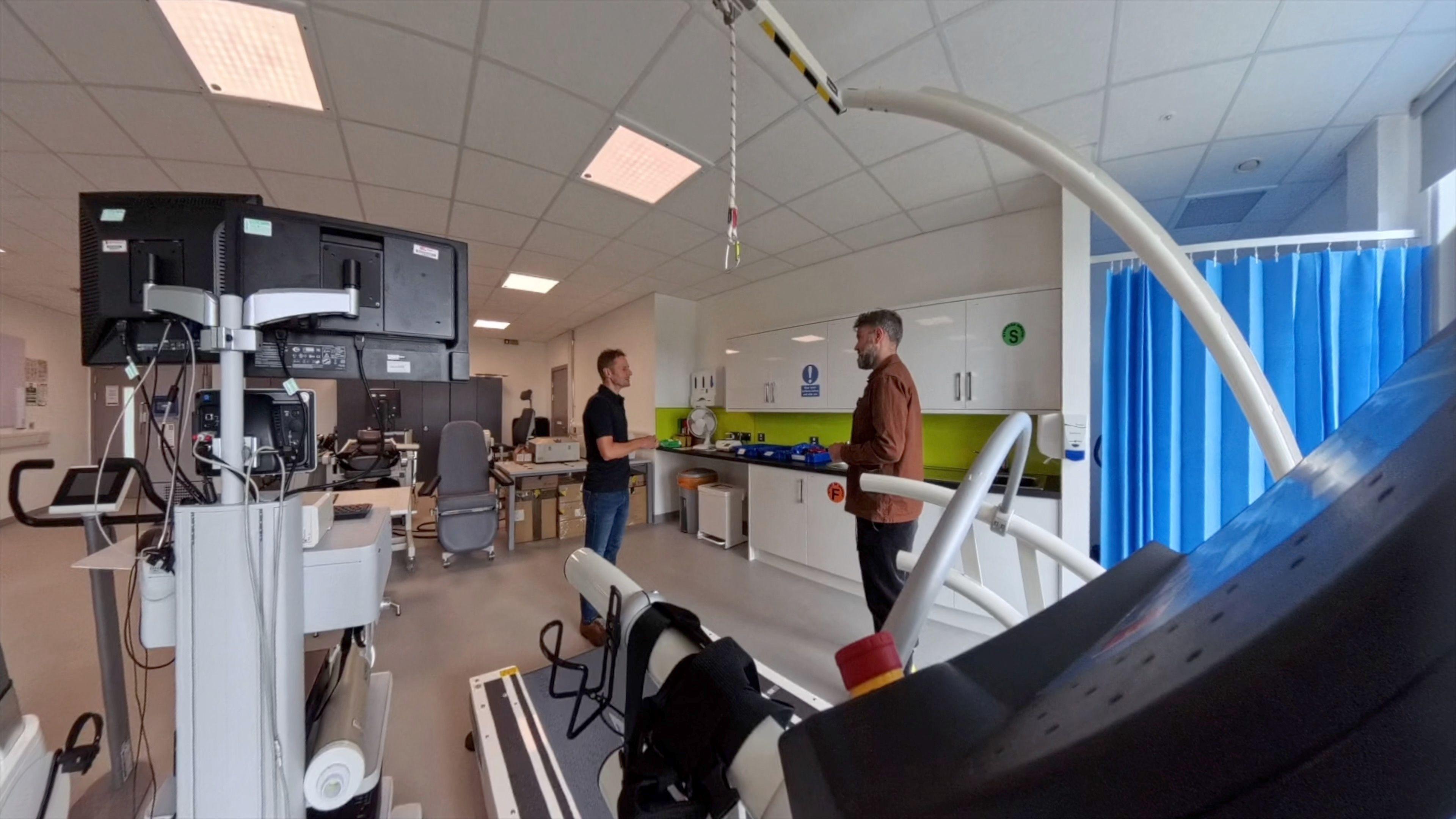
Rob Copeland showed me round the Advanced Wellbeing Research Centre in Sheffield
The need for good spaces for people to exercise in and participate in sports is backed up by Rob Copeland, director of Sheffield Hallam University's Advanced Wellbeing and Research Centre.
The centre is one of those places you would have no idea about, unless you needed it.
As well as running projects to help elite athletes, it also takes that research and works out how it could benefit people, like me, who are only ever elite in their dreams.
Among other things, the centre runs fitness classes for cancer patients because its research suggests being fitter means treatment will work better.
Rob says having the space in which to exercise is not all about producing Premier League footballers.
"Research tells us that if you have access to high quality physical activity opportunities within a 600m radius of your house, you're 40% more likely to engage in physical activity than those that don't," he explains.
"What we find is that kids who are active tend to be active adults as well, so this benefit from an early age translates into later life.
"That means people are less likely to have a long-term condition and they're more likely to engage for longer in being economically active.
"And it's good fun," Rob adds. "Engaging in physical activity is good fun."
Get in touch
Tell us which stories we should cover in Yorkshire
Listen to highlights from South Yorkshire on BBC Sounds, catch up with the latest episode of Look North